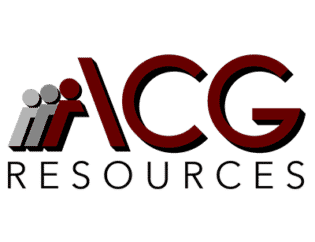Now more than ever, fostering trust between employers and leaders is paramount to successfully navigating these transitions and optimizing the adjustment to new working norms.
The upheaval caused by recent events has underscored the need for employers and leaders to reevaluate and reinforce trust within their organizations. Here are several strategies to help reinvigorate trust and optimize the adjustment to new working norms:
Transparency and Open Communication
Transparent communication is key to building trust. Employers and leaders should strive to keep employees informed about changes, challenges, and expectations. This means sharing information about company strategies and decisions and being honest about potential challenges or uncertainties.
Whether through regular updates, town hall meetings, or open-door policies, fostering a culture of openness builds trust by demonstrating authenticity and honesty. When employees feel kept in the loop, and their concerns are heard, they are more likely to trust their leaders and feel aligned with the organization’s goals.
Empathy and Support
Empathy is essential, especially during times of change. Leaders must recognize the unique challenges employees may be facing and offer support accordingly. This goes beyond simply acknowledging difficulties – it involves actively listening to employees’ concerns, validating their experiences, and providing tangible assistance where possible.
This could involve providing resources for mental health and well-being, offering flexible work arrangements to accommodate personal circumstances, or simply lending a listening ear to those who need it. By showing empathy and understanding, leaders can foster a sense of trust and loyalty among their teams, as employees feel valued and supported by their organization.
Lead by Example
Leaders must embody the values and behaviors they wish to instill in their teams. This means leading by example, demonstrating integrity, accountability, and a commitment to ethical conduct. When leaders adhere to high standards of behavior, they set a positive example for their teams to follow.
This builds trust in the leaders, reinforces the organization’s values, and fosters a culture of trust and respect. Conversely, when leaders fail to uphold these standards, it can erode trust and undermine morale within the organization. By consistently demonstrating integrity and accountability, leaders can inspire trust and confidence in their leadership among their teams.
Collaboration and Inclusivity
Collaboration breeds trust by empowering employees to contribute their ideas and perspectives. Employers and leaders should encourage collaboration across teams, departments, and hierarchies. This involves creating opportunities for cross-functional collaboration, fostering a culture of open dialogue and idea-sharing, and actively seeking input from employees at all levels of the organization.
Fostering an inclusive environment where every voice is valued cultivates trust by demonstrating respect for diverse viewpoints and experiences. When employees feel included and valued for their contributions, they are more likely to trust their leaders and feel a sense of belonging within the organization.
Flexibility and Adaptability
In today’s dynamic work environment, flexibility is crucial. Employers and leaders must be willing to adapt to changing circumstances and embrace new working methods. This could involve flexible work arrangements, such as remote work or flexible hours, to accommodate employees’ needs and preferences.
It could also include embracing technology to facilitate remote collaboration and communication or reimagining traditional processes to suit evolving needs better. By demonstrating flexibility and adaptability, leaders can instill confidence in their ability to navigate uncertainty and lead their teams effectively. This fosters a sense of trust and stability within the organization, as employees feel confident that their leaders can adapt to whatever challenges may arise.
Recognition and Appreciation
Recognizing and appreciating employees’ contributions is vital for building trust and morale. Employers and leaders should regularly acknowledge and celebrate achievements, milestones, and hard work. This could involve praising individuals or teams for accomplishments, publicly recognizing their efforts in meetings or company-wide communications, or providing rewards and incentives for exceptional performance.
Whether through verbal praise, bonuses, or other forms of recognition, showing appreciation fosters a positive work environment where employees feel valued and motivated to succeed. When employees feel appreciated and recognized for their contributions, they are more likely to trust their leaders and feel a sense of loyalty to the organization.
Conclusion
In conclusion, reinvigorating trust between employers and their leaders is essential for optimizing the adjustment to new working norms. By prioritizing transparency, empathy, collaboration, flexibility, recognition, and continuous learning, organizations can foster a culture of trust that empowers employees to adapt, innovate, and succeed in today’s ever-changing landscape.
Building trust is not just a one-time effort but an ongoing journey that requires commitment, integrity, and genuine care for the well-being and success of all stakeholders involved. As employers and leaders embrace these principles, they can pave the way for a brighter, more resilient future for their organizations and people.







